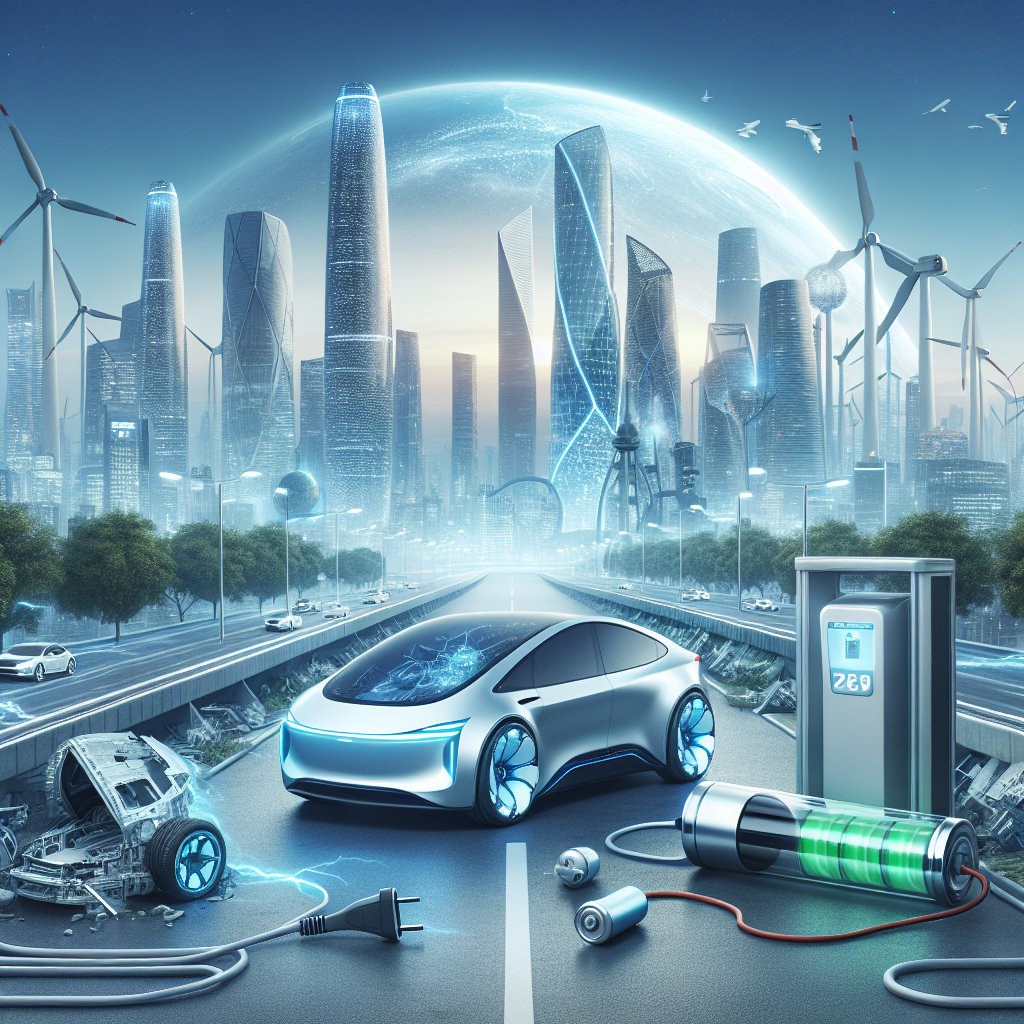The Future of Electric Vehicles: Prospects and Challenges
The automotive industry is on the verge of a paradigm shift, with electric vehicles (EVs) at the forefront of this transformation. The future of electric vehicles is promising, offering a cleaner, more efficient alternative to traditional internal combustion engine vehicles. However, this transition comes with its own set of challenges that need to be addressed to fully realize the potential of EVs. In this article, we explore the prospects and challenges facing the future of electric vehicles.
Prospects of Electric Vehicles
1. Environmental Benefits:
One of the most significant advantages of electric vehicles is their contribution to reducing carbon emissions. Unlike conventional vehicles, EVs produce zero emissions at the point of use, making them a crucial component in the fight against climate change. Additionally, as the electricity grid becomes greener through the integration of renewable energy sources, the overall environmental impact of electric vehicles will continue to decrease.
2. Technological Advancements:
The rapid pace of technological advancements in battery technology, electric motors, and charging infrastructure is making EVs more attractive to consumers. Improvements in battery technology are leading to longer ranges, reduced charging times, and lower costs, addressing some of the primary concerns consumers have about electric vehicles.
3. Economic Incentives:
Many governments around the world are offering tax breaks, subsidies, and other incentives to encourage the adoption of electric vehicles. These incentives, combined with the lower operating and maintenance costs of EVs, make them an economically viable option for a growing number of consumers and businesses.
4. Growing Consumer Acceptance:
As more people experience the benefits of electric vehicles, consumer acceptance is growing. This is reflected in the increasing number of EV models available in the market, catering to a wide range of tastes and budgets.
Challenges Facing Electric Vehicles
1. Charging Infrastructure:
One of the biggest challenges to the widespread adoption of electric vehicles is the need for extensive and accessible charging infrastructure. While progress has been made, the availability of charging stations remains uneven, particularly in rural and underserved areas. This creates a barrier to adoption for potential EV owners who worry about range anxiety.
2. Battery Production and Recycling:
The demand for the raw materials used in EV batteries, such as lithium, cobalt, and nickel, is expected to surge, raising concerns about the environmental impact of mining these materials. Additionally, the industry must develop more efficient and environmentally friendly ways to recycle batteries, reducing the demand for new raw materials and mitigating environmental impacts.
3. Grid Capacity and Stability:
As the number of electric vehicles on the road increases, so does the demand for electricity. This poses a challenge to grid capacity and stability, especially during peak charging times. Utilities and grid operators will need to invest in smart grid technologies and demand-response strategies to manage this increased load without compromising grid stability.
4. Cost:
Despite falling battery prices, electric vehicles can still be more expensive upfront than their internal combustion counterparts. This price difference, although narrowing, remains a hurdle for many consumers, especially in the absence of government incentives.
FAQs
Q: How long do electric vehicles’ batteries last?
A: Most EV batteries are designed to last for about 8 to 15 years, depending on the model and how the vehicle is used. Technological advancements are expected to further increase battery life in the future.
Q: Can electric vehicles help reduce global warming?
A: Yes, electric vehicles can play a significant role in reducing global warming by significantly lowering greenhouse gas emissions associated with transportation, especially as the electricity grid becomes cleaner.
Q: Are electric vehicles expensive to maintain?
A: No, electric vehicles typically have lower maintenance costs compared to traditional vehicles because they have fewer moving parts and do not require oil changes, fuel filters, spark plug replacements, or emissions testing.
Q: How long does it take to charge an electric vehicle?
A: Charging times vary depending on the battery’s size and the speed of the charging point. It can range from 30 minutes to several hours. Fast-charging stations can charge up to 80% of the battery in as little as 30 minutes.
Q: Is there enough lithium to meet the demand for electric vehicle batteries?
A: While there are concerns about the availability of lithium and other materials needed for EV batteries, ongoing research into alternative materials and recycling technologies aims to mitigate these concerns.
Conclusion
The future of electric vehicles is bright, offering significant environmental, economic, and societal benefits. However, realizing these benefits requires overcoming substantial challenges, particularly in developing the necessary charging infrastructure, ensuring the sustainable production and recycling of batteries, managing increased electricity demand, and making EVs affordable for all consumers. With concerted efforts from governments, industry, and consumers, the transition to a future dominated by electric vehicles can be achieved, heralding a new era of sustainable transportation.

